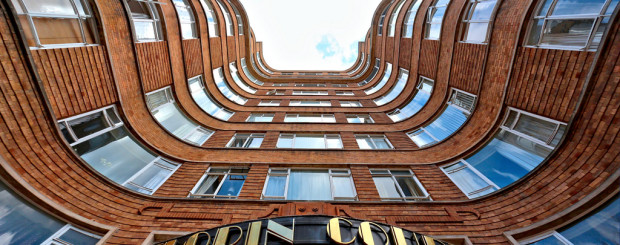How to find an Apartment in London
When you move to London, one of the first things you will need to do is to source some accommodation. Many expats choose to rent an apartment (more commonly known as a flat in England).
Renting has several advantages over buying a property: your monthly payments should be cheaper; bills such as electricity, gas, TV and Council Tax may be included; maintenance is done for you by the landlord or agent and you are not tied for too long in one place should you find work or study opportunities elsewhere.
Of course, if you prefer to buy a house, and are able to secure a mortgage and pay a deposit, you should pursue that route, but this article is geared towards expats looking to find an apartment, or flat to rent in London.
Finding an Apartment/Flat in London
There are so many flats to choose from so your first task is to narrow down your search options by deciding on the criteria that are most important to you. If you are going to be away working or studying for a lot of the time, you won’t want to rent something too large. Not only will you be paying more money for it, there will be more cleaning and organising to be done on your time off. It would also be wise to consider getting a flat on the second floor or higher, as an empty ground floor flat might be less secure.
You also need to decide whether you will be sharing. This can save you money, but you will probably be ‘jointly and severally liable’ for rent and bills, meaning you will have to settle up if your flatmates prove to be unreliable. Other factors that might be important to you are having a garden; washing and drying facilities and whether the property is furnished, semi-furnished or unfurnished.
Once you have narrowed down your search, it’s time to get looking for suitable properties. There are various ways you can go about this:
- Word of mouth; do you know anyone who is looking to share a flat in London? Tell your London friends about your plans and keep your ear to the ground
- Search online through a specialist property-finding site like Rightmove and register for email alerts
- Buy a local newspaper that has a property section. Try to get a copy on the day it comes out as flats are often snapped up quickly
- Visit an estate agent. A directory of estate agents can be found on the National Association of Estate Agents website..
- If you study, enquire at the Student Accommodation office
Letting Agents and Landlords
Expats looking to rent an apartment, or flat, in London generally have two choices: rent privately through a landlord or landlady, or use a letting agency. Agencies may deal with only the initial handling of the tenancy agreement and deposit or they may be your primary contact throughout.
Dealing with a landlord or landlady is inherently more risky as they are unregulated and will not necessarily adhere to the terms of the tenancy agreement, although there are obviously excellent landlords and landladies out there too.
An agent should be regulated by the Association of Residential Letting Agents and there are directories on both the ARLA website and National Approved Lettings Scheme.
Viewing the Property
Once you have spotted a flat you like the look of, and that satisfies your minimal needs, you should arrange a viewing with the landlord, agency or estate agent. This is your opportunity to scrutinise every aspect of the property and ask any questions you have.
Your checks should include:
- Heating and water. How is the heating operated (your landlord/landlady is legally obliged to provide instructions); does it work (check both the hot water and radiators as they are usually on different systems; are the windows double glazed and is the flat well-insulated?
- Gas safety. Boilers usually run on gas which can be dangerous due to poisonous carbon monoxide emissions and leaks, which can explode in extreme cases. Landlords have to be able to show you a current P12 Gas Safety Certificate.
- Electricity. Is there a modern fuse box; is it clear how to turn off the mains or isolate circuits and how many sockets are there?
- What furniture and appliances are at the property? Are there instructions for them and do they meet fire safety regulations (check soft furnishings for labels)?
- Is there a garden; is there parking on or off the street?
- How much storage is there?
- Is the property, including the walls, roof, guttering, ceilings, floors, doors and windows generally clean and well-maintained?
It is advisable to visit the property at various times of the day to help you assess the amount of traffic, the number of people walking by and the habits of your potential neighbours. If there are exisiting tenants, ask them about the landlord/landlady or agent. Are they treated well? Are they overly intrusive?
Before signing anything, find out whether there are any planned developments (e.g. new roads and houses) that might affect your living conditions.
Rent, Bills and Charges
Once you have started living in the property you are liable for rent which is often payable per calendar month, but is sometimes arranged on a weekly or quarterly basis. You will also pay a deposit that is refundable after your tenancy ends, minus any deduction due to damage beyond fair wear and tear. This must be placed in a Tenancy Deposit Protection Scheme.
Bills are sometimes included in the rental price, but they are often not. If not, you will need to arrange to pay Council Tax through your local authority (there is a directory on the government’s website), as well as utilities (gas, water and electric), TV, telephone and Internet (if applicable). A TV Licence is compulsory in London and the rest of the UK, unless you never watch live TV (even on a computer, games console or mobile device).
You might also have to pay communal cleaning charges, and it is advisable that you take out contents insurance for your possessions (although it is your landlord/landladies responsibility to insure the building.
Your Rights and Responsibilities
Although a tenancy agreement can be verbal, this type of agreement is highly discouraged, especially for expats who can more easily be taken advantage of due to their unfamiliarity with UK law.
The most common form of tenancy agreement in London is the Assured Shorthold Tenancy (AST), which usually gives tenants a 6 or 12 months fixed period of occupation before becoming periodic, although an AST can be periodic from the start. Landlords are not permitted to repossess the house during the fixed period (except if you break the terms of the agreement) and they have to give you two months notice once the fixed term is over. In return, you are not allowed to leave within the fixed period and will be charged the full term if you do. Otherwise, you can move out with one month’s notice.
Your responsibilities to your landlord/landlady are largely common-sense, including:
- Paying rent on time (setting up a form of automatic payment called a Standing Order is a good ides)
- Paying bills on time
- Avoiding antisocial and illegal behaviour (making loud noise etc.)
- Respecting your property and its surroundings (looking after furniture, disposing of rubbish properly, cleaning up after pets)
- Telling your landlord/landlady/agent promptly when maintenance is required
You are also not allowed to run a business from your flat or make alterations, decorate or spend more than 14 days away without permission.
Your landlord/landlady also has responsibilities to you, including:
- Maintenance of the property (not including changing bulbs and batteries)
- Giving you two month’s notice before repossessing the property
- Giving you ample notice before visiting (and not visiting too much)
- Providing you with keys if they have cause to change the locks
- Providing their name and address
- Placing your deposit in a Tenancy Deposit Protection Scheme
Moving in Day
Moving in to your new property is an exciting time, but it can be stressful. To make moving easier, it is best to prepare well beforehand by getting post redirected to your new address; updating your details with your bank and utilities companies (if applicable) and packing as much as possible yourself. Use a registered removals company to ensure your valuables are well looked-after.
Once you have collected your keys, your life as a resident in the UKs vibrant capital has finally begun.








